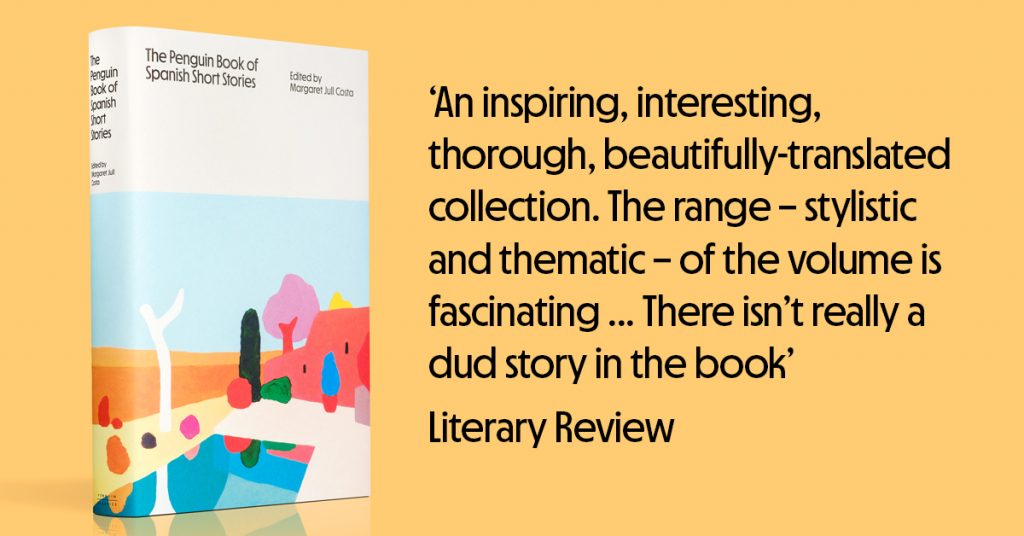«The secret to being a good translator is to work really hard at acquiring the necessary skills»

Ahead of the publication of THE PENGUIN BOOK OF SPANISH SHORT STORIES, edited by highly revered Margaret Jull Costa on June 24th, by Penguin Classics, we interview her in our blog.
This wonderful anthology brings together over 50 stories from across the Spanish canon. The list of the contributors, many of which have never before been translated into English, includes giants of Spanish literary culture, from Emilia Pardo Bazán and Leopoldo Alas, through Mercè Rodoreda and Manuel Rivas, to Ana Maria Matute and Javier Marías.
This exciting new collection celebrates the richness and variety of the Spanish short story, how was the editing process?
MJC: Well, as you can imagine, it involved a lot of reading, but that was such a pleasure, and led me to making lots of discoveries. The hardest part was having to leave some stories or authors out, but that is the nature of anthologies.
The book includes authors from the nineteenth century to the present day, could you tell us some insights about your selection?
MJC: As well as including all periods from the nineteenth century to now, I wanted the stories to be as varied as possible, some funny, some tragic, some fantastical, some pure realism, etc. and covering as wide a range of human experience as possible too.
It features over fifty stories, what can the audience expect to see?
MJC: I hope they’ll get a real idea of the breadth and variety of Spanish writing and will be introduced to writers they will never have heard of and might well want to read more of.
Which authors are favourites for you?
MJC: My main criterion was only to include stories I loved, so in that sense, they are all favourites!
Which author do you consider a hidden gem for the British public?
Again, there are many candidates, especially among the older women writers – Esther Tusquets, Carmen Martín Gaite, Mercè Rodoreda, Rosa Chacel, Ana María Matute – who tend to be overlooked (a) because they’re women and (b) because they’re dead.
You are a revered translator, in your opinion what is the secret to be a good translator?
MJC: I’m not sure I am ‘revered’! But I am, I hope, respected. And the secret to being a good translator is, as it is for most professions, to work really hard at acquiring the necessary skills. For a translator those key skills are being a very good reader, sensitive to register and tone and voice, and having a real passion for language, your own and the languages you translate from, and a delight in using your own language to its full potential. Oh, and a keen sense of curiosity, always wanting to learn more. Learning a language is a never-ending journey.
You earned an undergraduate degree in Spanish and Portuguese from the University of Bristol, why did you decide to study Spanish at that time?
MJC: I had spent time in Spain when I was younger, between the ages of eighteen and twenty-one, and pretty much taught myself Spanish. Then, when I was twenty-three, I decided I wanted to go to university to study language and literature, so I studied part-time for my Spanish A-Level and got a place at Bristol.


